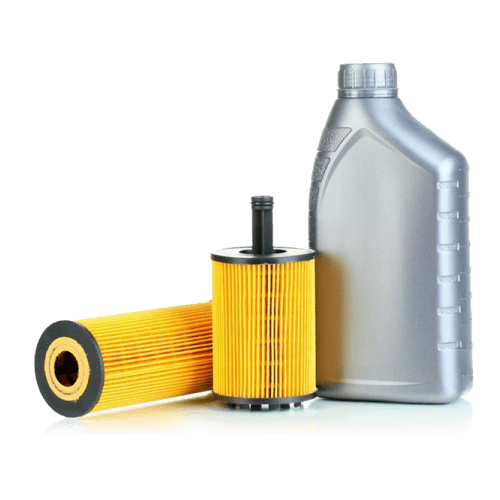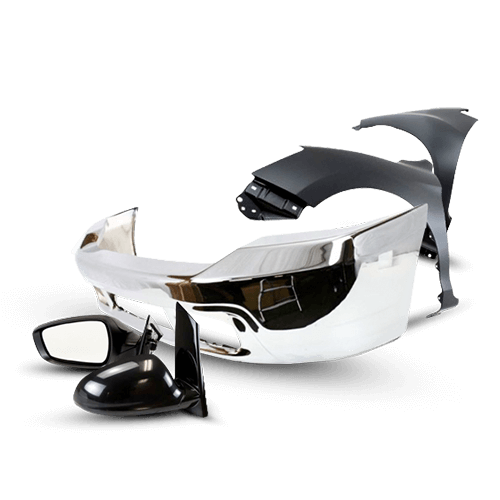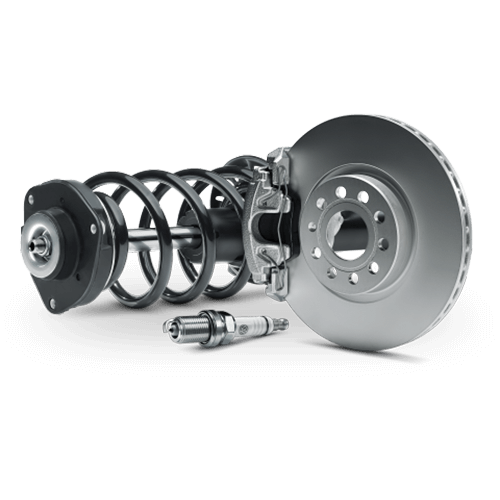
All You Need To Know About The Car Coil Spring Replacement
Maintaining the health and performance of your vehicle's suspension system is crucial for a smooth, safe, and comfortable driving experience. At the heart of this system are the coil springs, which play a vital role in absorbing shocks, providing a stable ride, and ensuring your car's handling remains responsive. In this comprehensive guide, we'll delve into the world of coil spring replacement, covering everything you need to know to keep your vehicle in top shape.
Understanding Coil Springs
Coil springs are an integral part of a vehicle's suspension system, responsible for supporting the weight of the car and absorbing the impact of bumps, potholes, and other road irregularities. They are typically made of high-strength steel and are designed to compress and expand as the wheels move up and down, providing a cushioned ride.
The function of coil springs is to maintain a consistent and level ride height, ensuring the tires remain in optimal contact with the road. This, in turn, enhances the vehicle's handling, stability, and overall safety. Coil springs come in a variety of types, including standard, heavy-duty, and performance-oriented designs, each tailored to meet the specific needs of different vehicle models and driving conditions.
When to Replace Coil Springs
Coil springs are designed to last for the lifetime of a vehicle, but they can wear down over time due to a variety of factors, including age, mileage, and exposure to harsh driving conditions. It's important to be aware of the signs that indicate it's time to replace your car's coil springs, such as:
- Age and Mileage: As a general rule, coil springs should be inspected and replaced every 50,000 to 100,000 miles, or every 5 to 10 years, depending on your driving habits and the condition of your vehicle.
- Visible Damage or Wear: Look for signs of cracking, corrosion, or deformation in the coil springs. If you notice any of these issues, it's time to consider replacement.
- Changes in Vehicle Performance: If you notice a decline in your car's ride quality, such as excessive bouncing, sagging, or uneven tire wear, it could be an indication that your coil springs need to be replaced.
The Coil Spring Replacement Process
Replacing coil springs can be a complex task, and it's generally recommended to have it done by a professional mechanic. However, if you're a DIY enthusiast, you can tackle the job yourself with the right tools and safety precautions.
The process typically involves the following steps:
- Preparation and Safety: Ensure your vehicle is properly supported, the parking brake is engaged, and all necessary tools and equipment are on hand.
- Removal of the Old Coil Springs: This may involve the use of specialized tools, such as spring compressors, to safely remove the old springs.
- Installation of the New Coil Springs: Carefully install the new coil springs, ensuring they are properly aligned and seated in the suspension components.
- Adjustment and Alignment: After the new coil springs are in place, the vehicle's suspension and alignment may need to be adjusted to ensure proper handling and tire wear.
It's important to note that the specific steps may vary depending on the make and model of your vehicle, so it's always a good idea to consult your owner's manual or a professional mechanic for guidance.
Coil Springs vs. Struts and Shocks
While coil springs are a crucial component of the suspension system, they often work in tandem with other suspension parts, such as struts and shocks. Struts and shocks are responsible for dampening the movement of the coil springs, providing a smooth and controlled ride.
In some cases, it may be necessary to replace the struts or shocks along with the coil springs, especially if the other suspension components are worn or damaged. It's important to have a professional technician evaluate the entire suspension system to determine the best course of action.
Cost Considerations
The cost of coil spring replacement can vary depending on several factors, including the make and model of your vehicle, the quality of the replacement parts, and whether you choose to have the work done by a professional or tackle it as a DIY project.
On average, the cost of coil spring replacement can range from $200 to $800 per axle, with the higher end of the spectrum typically involving more complex or specialized vehicles. It's important to factor in the cost of any additional suspension components, such as struts or shocks, that may need to be replaced as well.
Where to Get Coil Springs
When it comes to sourcing replacement coil springs, you have several options. You can choose to go with original equipment manufacturer (OEM) parts, which are designed specifically for your vehicle, or opt for high-quality aftermarket options, such as Mubea those available at Bestparts.ca.
Bestparts.ca is a leading online retailer of aftermarket auto parts in Canada, offering a wide selection of coil springs and other suspension components at competitive prices. With free shipping and a commitment to customer satisfaction, Bestparts.ca is a reliable and convenient choice for your coil spring replacement needs.

Maintenance Tips for Coil Springs
To extend the lifespan of your vehicle's coil springs, it's important to follow a few simple maintenance tips:
- Regular Inspection: Regularly inspect your coil springs for signs of wear, damage, or corrosion, and address any issues promptly.
- Proper Vehicle Care: Maintain your vehicle's overall condition, including regular tire rotations, wheel alignments, and suspension system checks, to minimize the strain on the coil springs.
- Avoid Overloading: Ensure you don't exceed the recommended weight capacity of your vehicle, as this can put excessive stress on the coil springs and other suspension components.
By following these maintenance guidelines and addressing any coil spring issues in a timely manner, you can help ensure your vehicle's suspension system continues to perform at its best, providing a smooth, safe, and comfortable driving experience for years to come.
Impact of Coil Spring Replacement on Vehicle Performance
Replacing worn or damaged coil springs can have a significant impact on your vehicle's overall performance and handling. When you install new coil springs, you can expect:
- Improved Ride Quality: Fresh coil springs will provide a smoother, more cushioned ride, reducing the impact of bumps and potholes.
- Enhanced Handling and Stability: With properly functioning coil springs, your vehicle's handling will feel more responsive and precise, improving its overall stability and control.
- Increased Safety: Properly maintained suspension components, including coil springs, contribute to better tire-to-road contact, which is crucial for safe braking and maneuvering.
By prioritizing the timely replacement of your car's coil springs, you can ensure your vehicle continues to deliver a comfortable, safe, and enjoyable driving experience for years to come.
Conclusion
Coil springs are a critical component of your vehicle's suspension system, and understanding when and how to replace them is essential for maintaining the overall health and performance of your car. Whether you choose to have the work done by a professional or tackle it as a DIY project, be sure to use high-quality replacement parts, such as those available at Bestparts.ca, and follow the proper safety and maintenance protocols.
By staying proactive with your coil spring replacement, you can enjoy a smoother, safer, and more responsive ride, while extending the lifespan of your vehicle's suspension system. Remember, regular inspections and timely repairs are the keys to keeping your car in top shape and ensuring a worry-free driving experience.























































